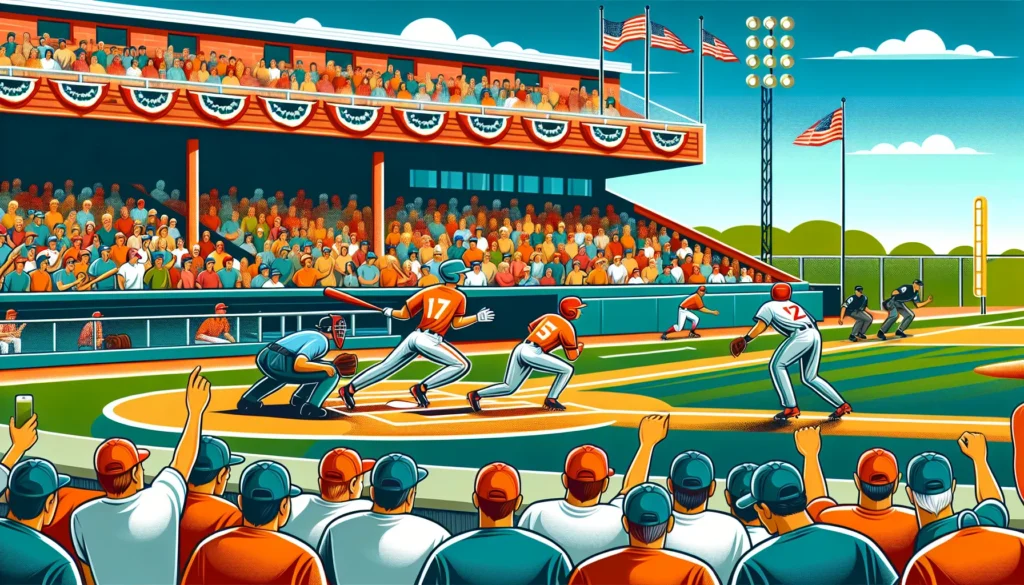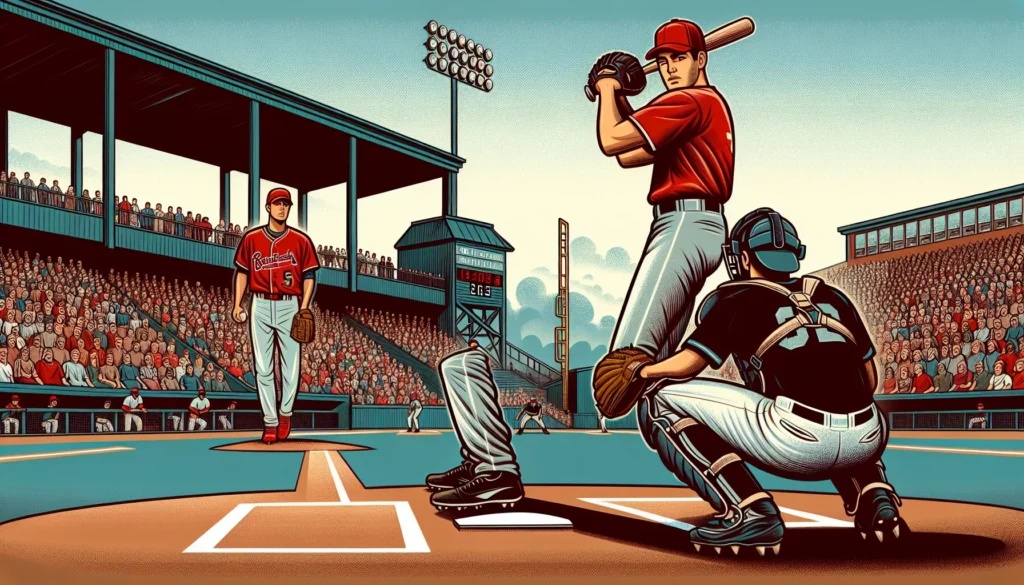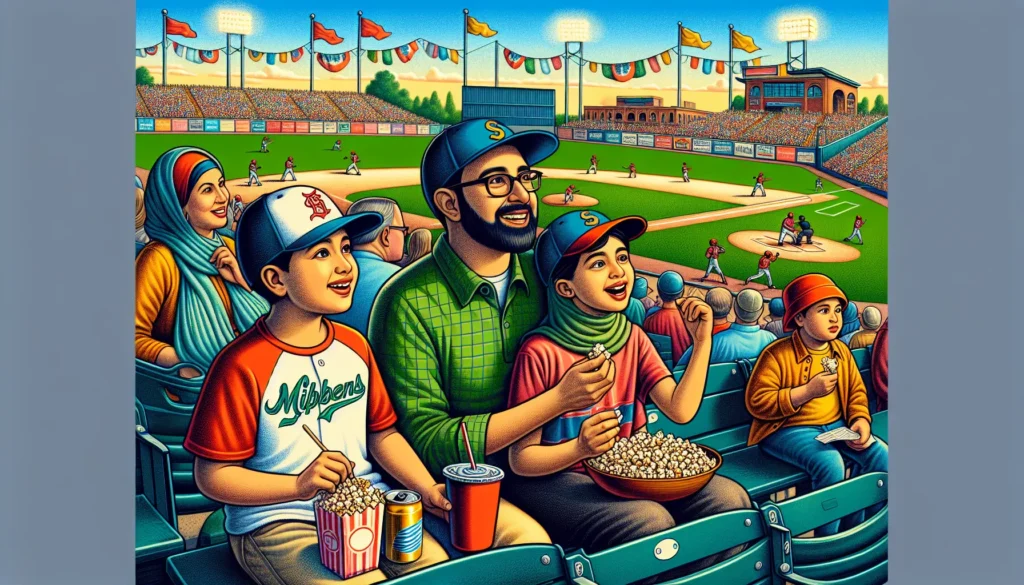
If you’re planning to catch a minor league baseball game, you might be wondering how long you’ll be at the ballpark. Unlike major league games, minor league matchups bring their own unique pace and charm, but the game length can still vary depending on a few factors. Whether you’re a die-hard fan or just looking for a fun outing, knowing what to expect can help you plan your day.
Minor league games typically follow the same rules as their major league counterparts, but differences like player experience, gameplay style, and occasional experimental rules can influence the duration. On average, these games last a few hours, but there are always exceptions. So grab your peanuts and cracker jacks—you’re in for an exciting experience that’s as much about the atmosphere as the game itself.
Overview Of Minor League Baseball Games
Minor league baseball games typically serve as a developmental stage for players aspiring to reach the major leagues. These games generally adhere to the official rules established by Major League Baseball (MLB). This includes the duration of nine innings per standard game, with extra innings played if a tie occurs.
Player development remains a key focus, so gameplay strategies may differ slightly from what you see in major league games. Managers often prioritize giving players opportunities to learn, which can influence the pace and decision-making during games. While some games conclude in as little as two hours, others can extend closer to three hours due to factors like pitching changes, scoring variations, or extra innings.
Average Duration Of Minor League Games

Minor league baseball games typically last between two and three hours. While most games align with this timeframe, unique factors can cause variations in duration.
Factors Affecting Game Length
Specific elements influence how long minor league games last.
- Gameplay Pace: Teams in the minor leagues often feature players refining their skills, which can lead to slower gameplay through pitching adjustments, defensive shifts, or strategic pauses.
- Extra Innings: Closely contested games extending beyond nine innings add significant time to the game. For example, resolving a tie can increase duration by 30 or more minutes.
- Scoring and Pitching Changes: High-scoring games or frequent pitching substitutions extend the average timeline due to additional mound visits and in-game strategy changes.
- Promotional Activities: Minor league games often include fan interactions or events between innings, slightly extending the total experience.
Comparison To Major League Games
Minor league games tend to end quicker than major league contests.
- Rule Adjustments: Some leagues use pitch clocks or limit mound visits to maintain a faster pace, contributing to shorter games.
- Player Strategies: While major league players showcase refined strategies, minor league players focus on skill development, leading to more concise gameplay.
- Overall Atmosphere: The developmental focus in minor leagues often prioritizes progression over intensive in-game analyses, reducing delays compared to their major league counterparts.
Rule Changes Impacting Game Duration

Rule changes in minor league baseball have significantly influenced game lengths, aiming to create a faster-paced, fan-friendly experience. These adjustments address common delays while maintaining the sport’s integrity.
Introduction Of Pitch Clocks
Pitch clocks enforce strict timing rules for pitchers and batters, reducing downtime. Pitchers receive 14 seconds to deliver a pitch with the bases empty and 18-20 seconds with runners on base. Batters must be in the box and ready with 8 seconds remaining. Violations result in automatic balls or strikes. Implemented widely in 2022, this rule has cut average game times by 20-25 minutes, aligning minor league games closer to a two-hour and 30-minute average.
Doubleheader And Seven-Inning Games
Doubleheader games in the minors consist of two seven-inning contests instead of the standard nine innings. This change minimizes player fatigue and shortens total playtime. A single seven-inning game typically lasts around two hours, depending on scoring and in-game events. If the first game ends early, a brief intermission separates the two, keeping the overall duration manageable for spectators.
Tips For Watching Minor League Games

Attending a minor league baseball game provides a family-friendly experience and a chance to see emerging talent. Proper planning ensures an enjoyable visit without unexpected delays.
Planning Your Visit
Check the game schedule and start time before heading to the ballpark. Minor league teams often host themed nights, giveaways, or promotions, which can alter arrival patterns or increase crowd size. Arrive early to explore the stadium, watch player warm-ups, and secure a good seat. Many minor league parks feature unique attractions like kids’ zones or local food vendors, adding to the entertainment.
Bring essentials like sunscreen for day games or a light jacket for evenings. If your chosen game is part of a doubleheader, expect shorter playtime for each seven-inning game. Consider reviewing parking information, as smaller stadiums may have limited availability.
Managing Time Efficiently
Estimate at least 2-3 hours for the game, plus time for parking and entry. Games may end earlier if pitching dominates or longer if runs and substitutions are frequent. During extra innings, prepare for an extended stay.
Track the game pace using the ballpark’s scoreboard, which often includes pitch clocks. Take advantage of breaks, such as the time between innings or pitching changes, to grab snacks or stretch your legs without missing significant action. Re-entering some minor league stadiums isn’t allowed, so plan your exits carefully.
Conclusion
Attending a minor league baseball game offers a unique blend of entertainment, skill development, and family-friendly fun. While game lengths can vary, planning for about 2-3 hours ensures you’ll have plenty of time to enjoy the experience without feeling rushed. With the added charm of emerging talent and a relaxed atmosphere, minor league games are a perfect way to spend an afternoon or evening. Whether you’re a die-hard baseball fan or just looking for a casual outing, these games provide an engaging and memorable experience for everyone.
Frequently Asked Questions
How long does a minor league baseball game usually last?
Minor league baseball games typically last between 2 to 3 hours. Factors such as extra innings, high-scoring games, or frequent pitching changes can extend the duration, while recent rule changes like the pitch clock have shortened average game times by 20-25 minutes.
Why are minor league games shorter than major league games?
Minor league games are often shorter due to rule changes like pitch clocks and the focus on player development over complex strategies. Additionally, doubleheader games feature seven-inning contests, further reducing total playtime.
What is the duration of a seven-inning minor league game?
A seven-inning game, often part of a doubleheader, lasts around 2 hours on average. These shorter games help minimize player fatigue and streamline playtime.
What factors can extend the length of a minor league game?
High-scoring games, frequent pitching changes, and extra innings can make a minor league game longer. Additionally, promotional activities between innings might add a few extra minutes.
Should I plan on spending extra time before or after the game?
Yes, it’s recommended to arrive early to explore the stadium and secure good seats. Plan for at least 2-3 hours for the game itself, including time for parking, entry, and stadium activities.
Are minor league games family-friendly events?
Absolutely! Minor league games offer a family-friendly atmosphere with fun promotions, affordable ticket prices, and a chance to watch emerging baseball talent in a relaxed setting.
Is re-entry allowed during minor league games?
Re-entry policies vary by stadium, but many do not allow re-entry once you leave. It’s best to check the specific stadium rules before attending.
What essentials should I bring to a minor league game?
Consider bringing sunscreen, a light jacket, or other weather-appropriate items. Snacks and water may also be permitted depending on stadium policies, so check ahead of time.
How can I keep track of the game’s progress?
Use the stadium scoreboard, which typically displays inning updates, pitch counts, and other stats. Keeping an eye on the scoreboard helps you follow the pace of the game.
Are minor league games a good way to see future MLB players?
Yes, minor league games provide a unique chance to watch rising stars refine their skills before transitioning to the major leagues. It’s a great way to see potential future MLB talent up close.
